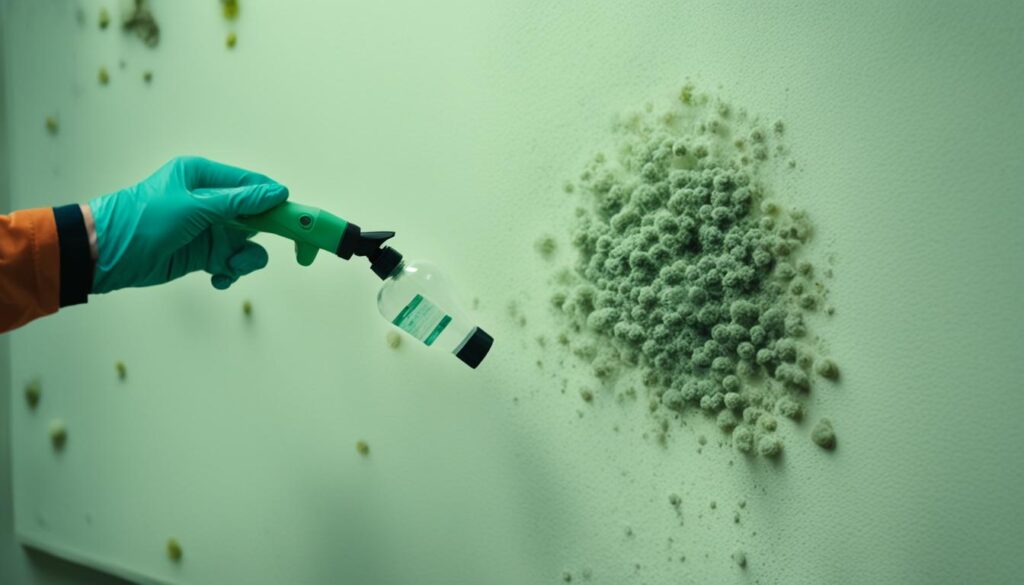
Mold Lawsuit Guide: Suing Landlord for Damages
When it comes to rental property issues, discovering mold can be one of the most concerning and potentially harmful situations tenants may face. Not only can mold cause property damage, but it can also pose significant health risks. In such cases, tenants have the right to take legal action against their landlords to seek compensation for the damages and ensure a safe living environment.
In this comprehensive Mold Lawsuit Guide, we will provide you with a roadmap for understanding the process of suing a landlord for mold damages. We will explore the landlord’s liability for mold infestation, steps to take when you discover mold, assessing mold damages for compensation, the legal steps involved in filing a mold lawsuit, and estimating the potential compensation amounts. By the end of this guide, you will have a clear understanding of your rights as a tenant and the necessary steps to take when dealing with mold-related issues.
- Understanding your rights as a tenant when dealing with mold issues is crucial.
- Documenting the presence of mold and notifying the landlord promptly are essential initial steps.
- Consulting with an attorney experienced in mold lawsuits can greatly benefit your case.
- Filing a proper complaint and gathering necessary evidence are crucial for a successful lawsuit.
- The compensation amount in a mold lawsuit depends on factors such as property damage, health effects, relocation expenses, and emotional distress.
Understanding Landlord Liability for Mold Infestation
When it comes to rental properties, landlords have a legal responsibility to provide a safe and habitable living environment for their tenants. This duty extends to the prevention and remediation of mold infestations, which can pose serious health risks and property damage.
Landlord liability for mold infestation typically revolves around negligence. In other words, if a landlord fails to address a mold issue in a timely manner and it causes harm to the tenants or the property, they may be held responsible for the damages.
It’s important for both tenants and landlords to understand their rights and responsibilities regarding mold infestations. Tenants should be proactive in notifying their landlord of any potential mold problems, while landlords should promptly address and remediate any issues that arise.
Here are a few key points to consider when it comes to landlord liability for mold infestation:
- Landlord’s duty to maintain: Landlords are responsible for maintaining rental properties in a condition that is safe and free from hazards. This includes addressing and remedying any mold issues that may arise.
- Proper ventilation and moisture control: Landlords should ensure that rental properties are adequately ventilated and have proper moisture control measures in place. This can help prevent the growth and spread of mold.
- Timely response to mold complaints: If a tenant notifies the landlord of a mold problem, the landlord should respond in a timely manner and take appropriate action to address the issue. This may involve hiring professionals to perform mold testing and remediation.
Understanding landlord liability for mold infestation is crucial for both tenants and landlords. Tenants have the right to a safe and healthy living environment, while landlords must fulfill their duty to maintain their properties and promptly address any mold-related issues.
By working together and staying informed, both parties can minimize the risks associated with mold infestations and ensure a positive rental experience.
Stay tuned for the next section of our Mold Lawsuit Guide, where we will discuss the steps tenants should take when they discover mold in their rental property.
Steps to Take When You Discover Mold
Discovering mold in your rental property can be concerning and potentially harmful to your health. It’s essential to take immediate action to address the issue and protect yourself. Follow these steps to ensure a proper response when you discover mold:
1. Document the Presence of Mold
Start by thoroughly documenting the presence of mold in your rental property. Take clear and detailed photographs or videos of the affected areas. This documentation will serve as evidence later on if you need to take legal action or discuss the issue with your landlord.
2. Notify Your Landlord
Contact your landlord as soon as possible to inform them about the mold problem. Provide them with the documentation you gathered in the previous step. It’s crucial to communicate with your landlord in writing, such as via email or certified mail, to create a paper trail.
3. Seek Medical Attention if Necessary
If you or anyone in your household is experiencing adverse health effects due to the mold, it’s important to seek medical attention. Mold exposure can cause respiratory issues, allergies, and other health problems. Consult a healthcare professional to assess your symptoms and determine the appropriate treatment.
Remember, your health and safety should be your top priority, so don’t hesitate to seek medical help if needed.
4. Cooperate with Your Landlord
Cooperate with your landlord throughout the process of addressing the mold issue. Allow them to inspect the property, take necessary actions to remediate the mold, and conduct any follow-up tests if required. It’s important to maintain open communication and work together to resolve the problem.
5. Keep Records of Communication
Keep records of all communication with your landlord regarding the mold issue. This includes emails, letters, and any other written correspondence. These records will be valuable if you need to provide evidence of your efforts to resolve the problem or if legal action becomes necessary.
6. Understand Your Rights
Research and understand your rights as a tenant when it comes to mold infestations. Familiarize yourself with local laws and regulations that protect tenants from living in unhealthy or unsafe conditions. Knowing your rights will empower you to take appropriate action and advocate for yourself if your landlord fails to address the mold problem adequately.

| Steps | Actions |
|---|---|
| 1 | Document the presence of mold with clear photographs or videos. |
| 2 | Notify your landlord in writing about the mold issue and provide documentation. |
| 3 | Seek medical attention if you or anyone in your household experiences health problems related to mold exposure. |
| 4 | Cooperate with your landlord during the remediation process. |
| 5 | Keep records of all communication with your landlord regarding the mold issue. |
| 6 | Familiarize yourself with your rights as a tenant and local laws regarding mold infestations. |
By following these steps, you can take control of the situation and ensure that the mold problem is addressed promptly and effectively. Remember, if your landlord fails to take appropriate action, you may need to seek legal advice to protect your rights and seek compensation for any damages or health issues caused by the mold infestation.
Assessing Mold Damages: Compensation Factors
When pursuing a mold lawsuit, it’s crucial to assess the damages suffered in order to determine the appropriate compensation amount. Several factors come into play when evaluating the overall impact of mold on both property and health. Understanding these compensation factors is essential for building a strong case. Let’s delve into the key factors that contribute to assessing mold damages:
1. Property Damage
Mold can cause significant damage to the structure and contents of a property. This includes discoloration, deterioration of surfaces, and even structural weakening. The extent of property damage will be evaluated, taking into account the cost of repairs, restoration, or replacement.
2. Health Effects
Mold exposure can have severe health implications, particularly for individuals with respiratory conditions or weakened immune systems. Compensation may be determined by the severity and duration of health effects caused by mold exposure, such as allergies, asthma attacks, or respiratory infections.
3. Relocation Expenses
In some cases, mold contamination may render a property uninhabitable, necessitating temporary relocation. Compensation may cover the costs associated with alternative accommodations, such as hotel expenses or the additional rent paid during the relocation period.
4. Emotional Distress
Mold infestation can cause significant emotional distress for tenants, with feelings of anxiety, stress, and discomfort. Compensation may be awarded for the emotional suffering endured due to living in a mold-infested environment.
It is important to note that the compensation factors may vary depending on the jurisdiction and the specific circumstances of the mold case. Consulting with a knowledgeable attorney will ensure a proper assessment of damages and appropriate legal action.
By considering the above compensation factors, you can better understand the potential value of your mold lawsuit. Remember to gather relevant evidence, seek professional advice, and work with a skilled attorney who specializes in mold litigation.
Now, let’s explore the legal steps involved in suing a landlord for mold damages in the next section.
Legal Steps Involved in Suing a Landlord for Mold
When faced with a mold infestation in your rental property, it’s crucial to understand the legal steps involved in suing your landlord for damages. Taking the proper legal actions can help you protect your rights as a tenant and seek compensation for the harm caused by the mold. This section will guide you through the key steps in the legal process.
Gathering Evidence
Before proceeding with a mold lawsuit, it’s essential to gather evidence to support your case. Document the presence of mold by taking clear photographs or videos. Make sure to include timestamps and geolocation to establish the conditions at the time of discovery. Additionally, gather any correspondence, such as emails or letters, exchanged with your landlord regarding the mold issue. This evidence will strengthen your claim and demonstrate the landlord’s awareness of the problem.
Hiring an Attorney
To navigate the complexities of a mold lawsuit successfully, it is advisable to consult with an experienced attorney specializing in landlord-tenant disputes. An attorney can provide expert advice, assess the strength of your case, and guide you through the legal process. They will help you understand your rights, negotiate on your behalf, and ensure that your interests are protected every step of the way.
Filing a Complaint
Once you have gathered sufficient evidence and secured legal representation, the next step is to file a formal complaint against your landlord. This complaint outlines the details of the mold infestation, the damages you have suffered, and the compensation you are seeking. Your attorney will help you draft the complaint according to the applicable laws and regulations in your jurisdiction.
Going Through the Litigation Process
After filing the complaint, the legal process begins, and it may involve mediation or court proceedings. During mediation, you and your landlord will attempt to reach a settlement with the help of a neutral third party. If mediation fails, the case may proceed to court, where a judge or jury will hear the evidence, arguments, and testimonies from both parties. The court will then make a judgment and determine the compensation amount, if applicable.
Suing a landlord for mold damages requires a thorough understanding of the legal process and diligent execution of each step. By gathering evidence, engaging an attorney, filing a complaint, and navigating the litigation process, you can seek the compensation you deserve for the harm caused by the mold infestation.

Key Takeaways:
- Gather evidence of the mold infestation, including photographs and correspondence with your landlord.
- Hire an experienced attorney specializing in landlord-tenant disputes to guide you through the legal process.
- File a formal complaint outlining the details of the mold infestation and the damages you have suffered.
- Engage in mediation or court proceedings to seek a settlement or a judgment for compensation.
Estimating Compensation Amounts: How Much Can You Sue for Mold?
When filing a mold lawsuit against a landlord, one of the crucial factors to consider is the estimation of compensation amounts. It is important to understand the potential damages that can be sought in order to determine a fair and just legal recourse. This section explores the various aspects that contribute to estimating compensation amounts in mold lawsuits.
Potential Damages in Mold Lawsuits
Property Damage:
One of the key factors in estimating compensation amounts for mold lawsuits is the extent of property damage caused by the mold infestation. This can include damage to walls, floors, ceilings, furniture, and personal belongings. To assess the monetary value of property damage, it is important to document the extent of the damage and gather evidence such as photographs or expert assessments.
Medical Expenses:
In cases where exposure to mold has caused health issues, such as respiratory problems or allergies, medical expenses can be included in the compensation sought. This can involve costs related to doctor visits, lab tests, medications, or even long-term medical treatment. Keeping accurate records of all medical expenses will help in determining the appropriate compensation.
Pain and Suffering:
Another factor that contributes to compensation amounts is the pain and suffering experienced by the tenant due to the mold infestation. This includes physical discomfort, emotional distress, inconvenience, and any adverse effects on the quality of life. Evaluating the impact of the mold infestation on the tenant’s overall well-being will help in quantifying the compensation for pain and suffering.
Previous Mold Lawsuit Cases
“In the landmark case of Smith v. Landlord, the court awarded the plaintiff $100,000 in compensation for property damage, medical expenses, and pain and suffering caused by a severe mold infestation. This case set a precedent for future mold lawsuits and highlighted the importance of adequate compensation for tenants.”
By examining previous mold lawsuit cases, it is possible to gain insights into the compensation amounts awarded in similar situations. While each case is unique, understanding the outcomes of previous cases can help in setting reasonable expectations regarding compensation.
Factors Affecting Compensation Amounts
| Factor | Impact on Compensation |
|---|---|
| Severity of Mold Infestation | Higher severity typically results in higher compensation amounts. |
| Duration of Exposure | Longer exposure may lead to higher compensation due to potential health risks. |
| Extent of Property Damage | More extensive damage may result in higher compensation for repairs or replacement. |
| Medical Expenses | Higher medical expenses can contribute to a larger compensation amount. |
| Pain and Suffering | The impact on the tenant’s well-being can affect the compensation awarded. |
It is important to note that each mold lawsuit is unique, and there are various other factors that may influence the compensation amount. Consulting with an experienced attorney specializing in mold litigation can help in accurately estimating the compensation amounts specific to your case.
Conclusion
In conclusion, if you find mold in your rental property, it’s important to understand your rights as a tenant and take appropriate legal steps to hold your landlord accountable for the damages. Landlords have a responsibility to maintain a safe and habitable living environment, including addressing mold infestations promptly. By documenting the presence of mold, notifying your landlord, and seeking medical attention if necessary, you can establish a strong foundation for a mold lawsuit.
When suing a landlord for mold damages, factors such as property damage, health effects, relocation expenses, and emotional distress are taken into consideration to determine the compensation amount. It’s crucial to gather evidence, hire an attorney experienced in mold litigation, and navigate the legal process diligently. Understanding the potential compensation amount can help you assess the impact the mold has had on your life and seek appropriate reimbursement.
By following the steps outlined in this guide and seeking legal recourse when necessary, you can protect your rights as a tenant and potentially receive compensation for the damages caused by the mold infestation. Remember, the presence of mold can have serious health consequences, and it’s important to take action to protect yourself and your loved ones. By staying informed and proactive, you can assert your rights and advocate for a safe living environment.




